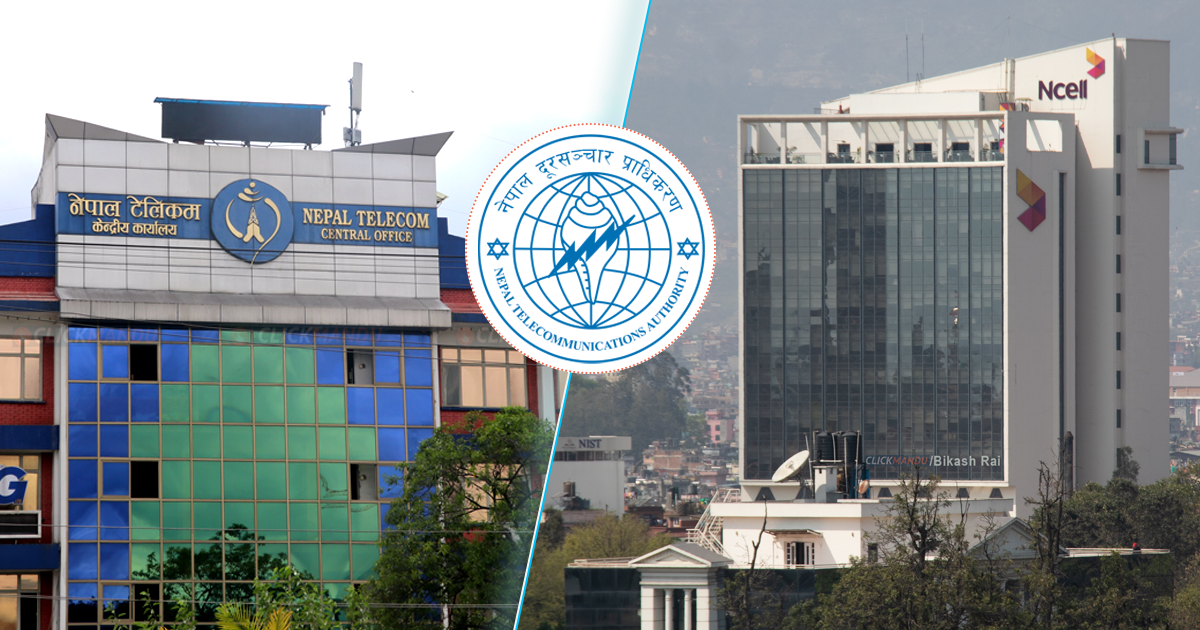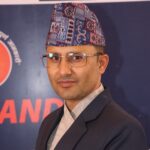Kathmandu: Free Wi-Fi services offered by internet service providers (ISPs) in Nepal are causing an estimated annual revenue loss of Rs 14 billion to the country’s two major mobile service providers — Nepal Telecom and Ncell. This was revealed in an internal study jointly conducted by the two telecom giants.
According to the findings, each company is suffering a loss of approximately Rs 7 billion per year as consumers opt for free Wi-Fi over mobile data services. The proliferation of hotspots functioning as mobility services — especially in public places — has drastically reduced the demand for mobile data.
In response, the Nepal Telecommunications Authority (NTA), the regulatory body overseeing telecom services, has decided to crack down on ISPs operating Wi-Fi hotspots without proper compliance.
The NTA has announced plans to strictly enforce existing legal frameworks by allowing ISPs to operate Wi-Fi hotspots only in designated areas and for limited periods of time. This move has been welcomed by mobile service providers who believe it will help restore fairness and balance in the telecom market.
Estimates suggest that around 25,000 Wi-Fi hotspots are currently active across the country, with WorldLink alone operating over 15,000. The remaining 10,000 are maintained by other ISPs.
Just two days ago, the NTA issued a public notice warning that ISPs operating free Wi-Fi hotspots without adhering to the designated time and location limits would face legal action.
NTA spokesperson Min Prasad Aryal said the notice was issued following numerous complaints about ISPs arbitrarily providing free Wi-Fi services, which should only be available within certain regulatory parameters.
“Now, only mobile service providers who hold mobility licenses will be allowed to offer seamless connectivity or roaming services through Wi-Fi,” Aryal stated.
Under the “Wi-Fi Hotspot Operating Regulation 2018,” the NTA will soon define clear time limits and geographical boundaries for hotspot services. For example, users may be allowed access for 30 minutes to one hour depending on the location, Aryal explained.
Telecom companies have long voiced concerns over the impact of free Wi-Fi on their revenue streams. With an estimated loss of Rs 14 billion in income, the government itself is losing significant tax revenue.
Nepal Telecom and Ncell are among the largest taxpayers in the country, remitting 30 percent in income tax, 13 percent in VAT, and 10 percent as telecom service charges.
Additionally, they pay 4 percent in royalties and 2 percent toward the Rural Telecommunication Development Fund (RTDF) from their total income to the NTA.
Telecom operators argue that ISPs providing free internet services earn no revenue and thus contribute minimally to government coffers, creating an unfair advantage. This situation, they say, not only undermines fair competition but also hurts national revenue.
According to NTA data for the fiscal year 2022/23, total revenue from mobile service providers was Rs 72.84 billion, while ISPs generated only Rs 21.39 billion. With telecom companies now shifting from voice to data-driven services, mobile data accounts for more than 40 percent of total revenue — further highlighting the adverse impact of free Wi-Fi offerings.
The NTA has clarified that seamless Wi-Fi connectivity and mobility services may only be provided by licensed operators authorized to offer basic or mobile telephone services. This regulatory step is being seen as a move to support telecom operators who have invested significantly in national infrastructure.
Both Nepal Telecom and Ncell have appreciated the NTA’s decision. They had previously raised repeated concerns about smaller ISPs offering free services with minimal licensing costs — sometimes as low as Rs 300,000 — while large telecom companies pay up to Rs 20 billion in license fees.
With the new enforcement of hotspot regulations, telecom companies expect some relief. The Wi-Fi Hotspot Operating Regulation 2018 allows hotspot services to be provided only within defined zones.
Regulation 5 (1) mandates that Wi-Fi access can be granted only for a limited time or data volume per login session. However, this provision has been widely ignored, particularly by WorldLink, which enables users to automatically reconnect after a single login and offers unrestricted access durations.
Following directives from the Ministry of Communications, the NTA has now instructed ISPs to immediately halt any illegal hotspot operations.
Nepal Telecom’s Deputy Spokesperson Navin Kumar Mishra told Clickmandu that this enforcement will benefit telecom companies. “As customers use more mobile data, mobile service providers’ revenue will naturally increase,” he noted.



Comment Here